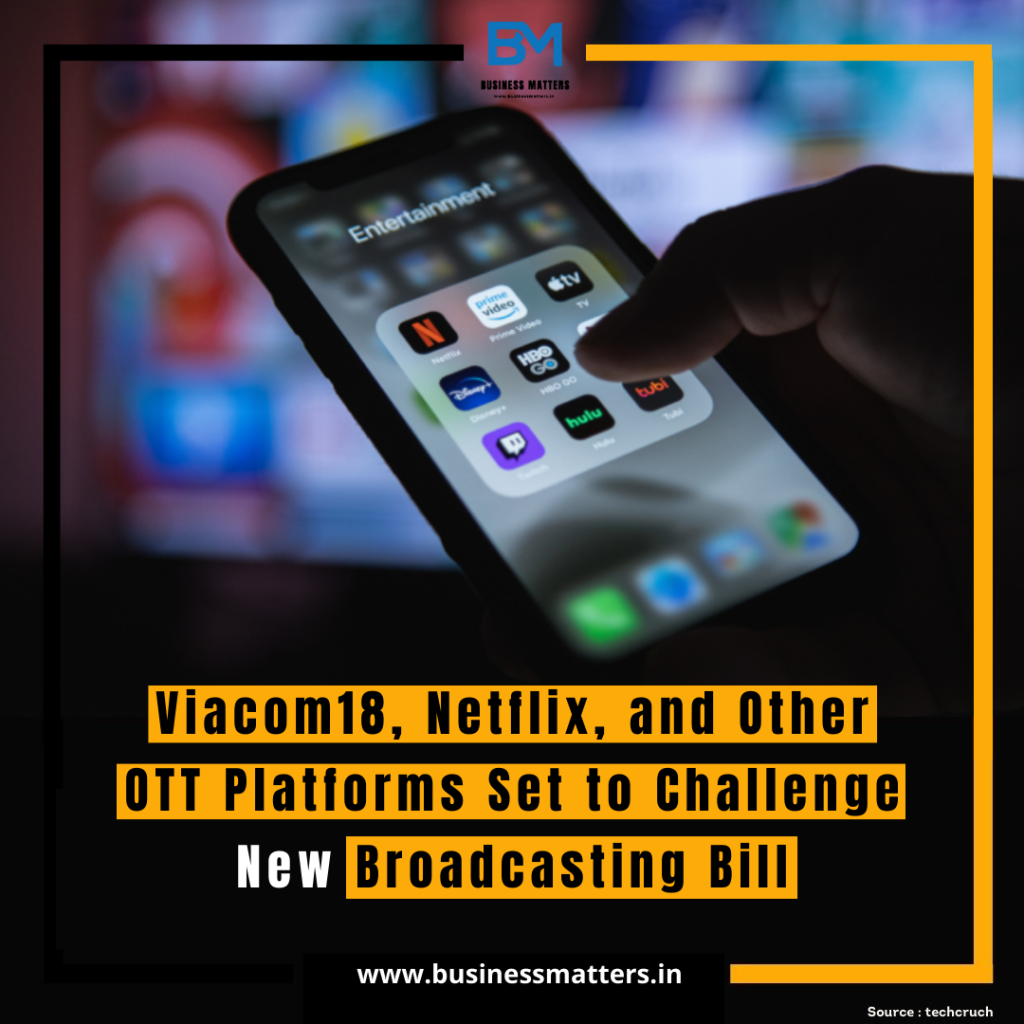In a rapidly evolving digital landscape, the Indian broadcasting industry is witnessing a paradigm shift with the emergence of over-the-top (OTT) platforms. Viacom18, Netflix, and other major players in the OTT space are gearing up to challenge the implications of the proposed Broadcasting Bill, which aims to regulate content streaming services.
The Broadcasting Bill, currently under consideration, seeks to bring online streaming platforms under a regulatory framework akin to traditional broadcasting networks. The move is seen as an attempt to address concerns related to content censorship, classification, and the protection of consumer interests. However, OTT platforms argue that such regulations may stifle creativity, limit artistic freedom, and hinder the industry’s growth.
Viacom18, a prominent player in the Indian media and entertainment sector, has expressed reservations about the proposed legislation. The company, which owns popular OTT platform Voot, believes that stringent regulations could impact the diversity of content available to consumers. Viacom18 argues that the current self-regulation mechanisms in place are sufficient and that additional oversight may lead to unnecessary restrictions.
Netflix, a global streaming giant, has also raised concerns about the Broadcasting Bill. The platform, known for its vast library of international and original content, fears that regulatory constraints could hamper its ability to provide a diverse and uncensored streaming experience to its subscribers. Netflix has emphasized the need for a balanced approach that addresses regulatory concerns without compromising artistic expression.
Other OTT platforms, both domestic and international, have joined the chorus of dissent against the proposed legislation. The diverse nature of content on these platforms, ranging from edgy originals to regional language productions, has garnered a wide audience base. Industry stakeholders argue that any move towards stringent regulations could lead to a homogenization of content, limiting the richness and variety that OTT platforms currently offer.
One of the key contentions between OTT platforms and regulators is the issue of self-regulation. Many streaming services argue that they already have robust self-regulatory mechanisms in place, such as content classification, parental controls, and viewer advisories. They contend that imposing additional regulations could be counterproductive and that the industry should be given the flexibility to evolve organically.
Industry experts suggest that a collaborative approach between OTT platforms and regulatory bodies is essential to strike a balance. Establishing a self-regulatory body that includes representatives from both the industry and government could be a viable solution. This would allow for the development of guidelines that address concerns related to content standards, while still fostering creativity and innovation in the OTT space.
As the debate over the Broadcasting Bill intensifies, the future of content regulation in India’s OTT landscape hangs in the balance. While there is a consensus on the need for certain checks and balances, the challenge lies in finding a middle ground that protects consumer interests without stifling the dynamic growth of the digital streaming industry.
In conclusion, Viacom18, Netflix, and other OTT platforms are gearing up to challenge the proposed Broadcasting Bill, which seeks to regulate content streaming services in India. The industry argues that a collaborative and balanced approach is necessary to address concerns related to content standards while fostering creativity and innovation in the rapidly evolving OTT landscape. The outcome of this debate will have far-reaching implications for the future of content regulation in India’s digital media industry.


